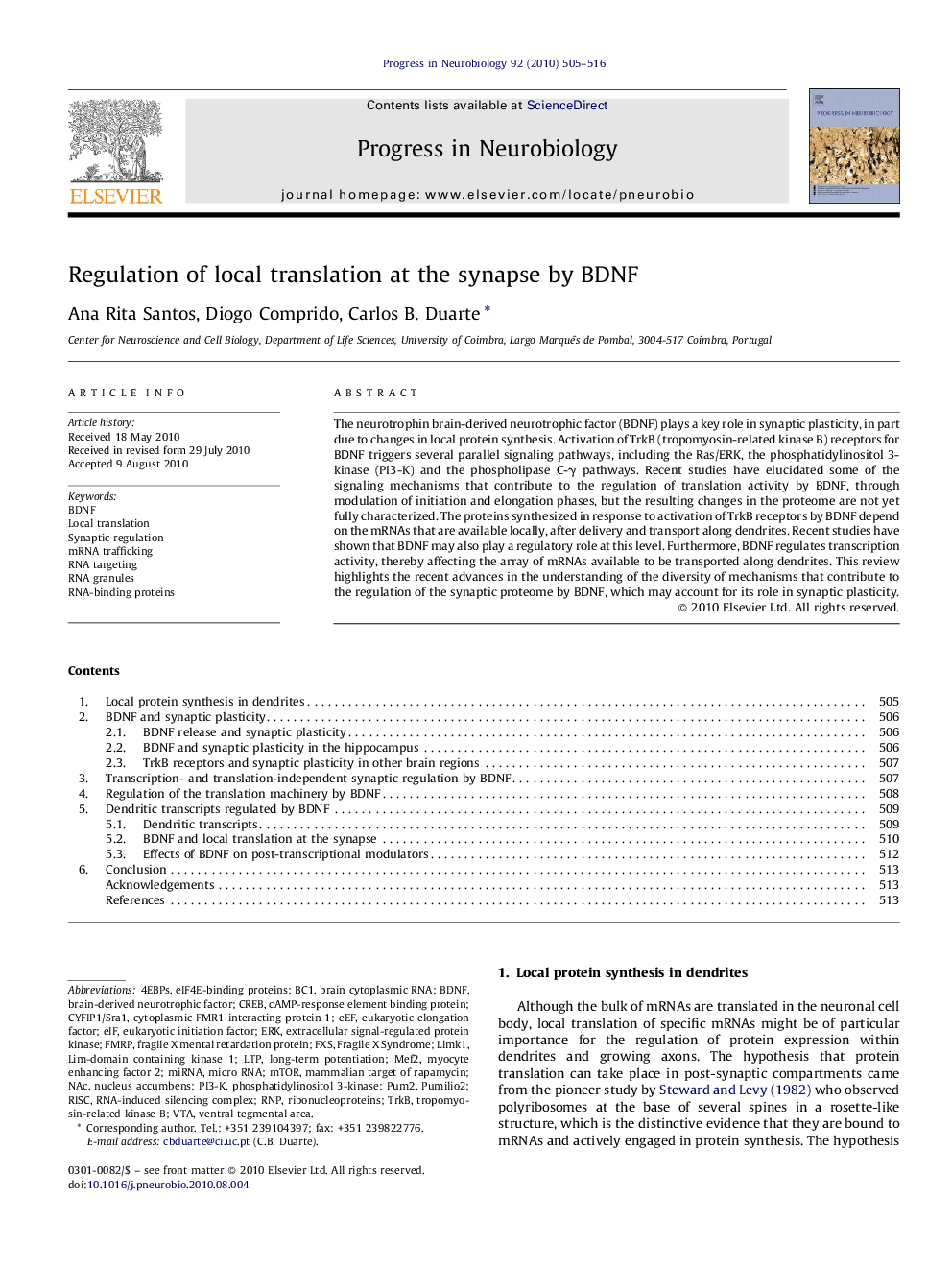| Article ID | Journal | Published Year | Pages | File Type |
|---|---|---|---|---|
| 4353520 | Progress in Neurobiology | 2010 | 12 Pages |
The neurotrophin brain-derived neurotrophic factor (BDNF) plays a key role in synaptic plasticity, in part due to changes in local protein synthesis. Activation of TrkB (tropomyosin-related kinase B) receptors for BDNF triggers several parallel signaling pathways, including the Ras/ERK, the phosphatidylinositol 3-kinase (PI3-K) and the phospholipase C-γ pathways. Recent studies have elucidated some of the signaling mechanisms that contribute to the regulation of translation activity by BDNF, through modulation of initiation and elongation phases, but the resulting changes in the proteome are not yet fully characterized. The proteins synthesized in response to activation of TrkB receptors by BDNF depend on the mRNAs that are available locally, after delivery and transport along dendrites. Recent studies have shown that BDNF may also play a regulatory role at this level. Furthermore, BDNF regulates transcription activity, thereby affecting the array of mRNAs available to be transported along dendrites. This review highlights the recent advances in the understanding of the diversity of mechanisms that contribute to the regulation of the synaptic proteome by BDNF, which may account for its role in synaptic plasticity.
Research highlights▶ BDNF is released from different types of neurons in an activity-dependent manner. ▶ BDNF regulates transcription and delivery of specific transcripts to dendrites. ▶ BDNF acts on a subpopulation of RNA-binding proteins. ▶ BDNF regulates local protein synthesis at the synapse. ▶ Local protein synthesis induced by BDNF contributes to long-term synaptic plasticity and memory formation.
